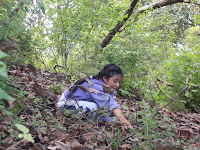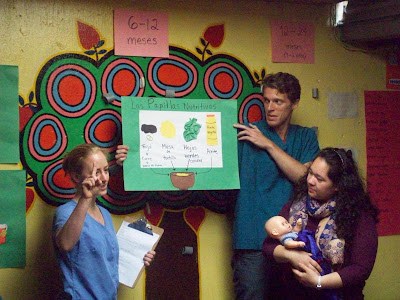We were greeted by a woman who lived nearby, Doña Regina, who spoke for several minutes about the importance of giving back to the Earth by re-planting trees that we depend on for our own lives. She expressed a great deal of gratitude and appreciation to the students who had accompanied us on our trip, reminding us how important it is to complement class-room study with ventures into the natural world.
We added 50 trees to this area, some digging and others planting the trees, and because we had so many people we were done in about 15 minutes. Afterwards, we remained there among the trees on the sloping land for several minutes, chatting and enjoying the beauty that surrounded us.
Twenty-five trees were meant to go to another area to be planted, but because the area was a long distance from where we were, we opted to leave them with Doña Regina. The students all agreed that it was a very pleasant experience, as we have all grown used to living in the hustle and bustle that is Xela.
In contrast to the quick pace of the city, it is undeniably important for us to take time to appreciate the beauty that Guatemala’s rural highlands have to offer. As the saplings we planted grow, so too must we, and experiences such as these in the natural world are an important component to our own growth.























